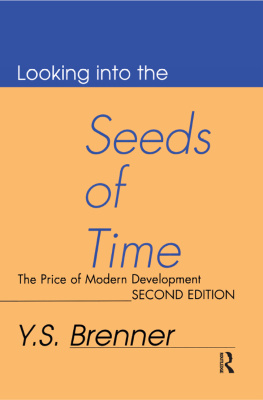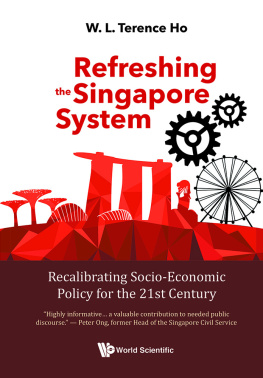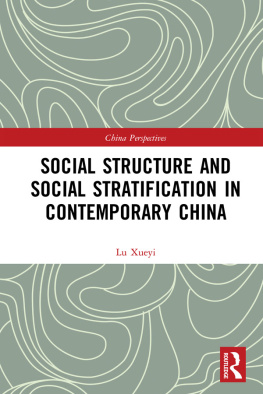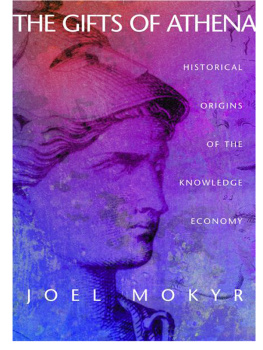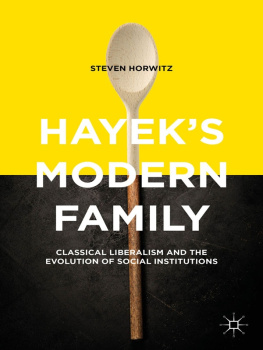Looking into the
Seeds
of
Time
Looking into the
Seeds
of
Time
The Price of Modern Development
SECOND EDITION
Y.S. Brenner
First published 1998 by Transaction Publishers
First edition published in 1979 by Van Gorcum & Comp
Published 2020 by Routledge
2 Park Square, Milton Park, Abingdon, Oxon OX14 4RN
605 Third Avenue, New York, NY 10017
First issued in hardback 2020
Routledge is an imprint of the Taylor & Francis Group, an informa business
Copyright 1998 Taylor & Francis
All rights reserved. No part of this book may be reprinted or reproduced or utilised in any form or by any electronic, mechanical, or other means, now known or hereafter invented, including photocopying and recording, or in any information storage or retrieval system, without permission in writing from the publishers.
Notice:
Product or corporate names may be trademarks or registered trademarks, and are used only for identification and explanation without intent to infringe.
Library of Congress Catalog Number: 97-30355
Library of Congress Cataloging-in-Publication Data
Brenner, Y. S.
Looking into the seeds of time : the price of modern development / Y.S. Brenner. 2nd ed.
p.cm.
Includes bibliographical references and index.
ISBN 1-56000-996-9 (pbk.)
1. Economic development. 2. Economic history. 3. Middle class. I. Title.
HD82.B6921997
ISBN 13: 978-1-138-52732-4 (hbk)
ISBN 13: 978-1-56000-996-2 (pbk)
DOI: 10.4324/9780429337901
This book was first published in 1979 and many things have changed since then. I have tried to discuss these changes in the introduction to this new edition. This introduction may just as well be regarded as an added chapter 12 to the old edition. Except for this, there is little difference between the old and the revised versions of the book. The changes I have made were mainly corrections of mistakes pointed out to me by colleagues, students and my wife, since the book first appeared in print.
I therefore want to take this opportunity to thank all those who convinced me to make the changes I made, and particularly to acknowledge the help given to me by my wife Mrs. Nancy Brenner-Golomb who practically rewrote a large part of . I also want to thank Edward Elgar for not objecting to my inclusion in this book of sections of my lecture given at Utrecht University in December 1996, from the book to be published by him later this year.
Finally I wish to express my gratitude to the following: Professor Warren Samuels for suggesting to me the reissue of the book; all the authors whose work I have cited and whose names and publishers are mentioned in the footnotes; to my colleagues and friends Antoon Spithoven and Maiumi Sadler-Hamada for helping me to get this new edition ready for publication.
Y.S. Brenner
Bilthoven, June 1997
Table of Contents
Introduction to second edition of
Looking into the Seeds of Time 1
Almost a quarter of a century past since I began writing Looking into the Seeds of Time. In it I defined economic progress as the augmentation of freedom of choice, and predicted that with mankinds increasing ability to satisfy its material needs more fully and with less effort this freedom would increase. At the time I was writing the book unemployment and abject destitution appeared to have almost been banished from the Welfare States, and the student movements call for a march through the institutions was still reverberating through the land. I was not unaware that the decreasing material constraints gave rise to new constraints because a more complex economic and social environment imposes new restrictions, but I believed that increasing productivity allows people greater freedom to choose between material goods and the satisfaction of other desires which could not be satisfied before. I believed, and continue to believe, that there is no freedom without economic security, and that economic security depends upon progress in both the natural and the social sciences because a societys institutions determine the pace and direction of technological advancement, and scientific and technological achievements determine which forms of social reorganization are possible and which illusionary. Science and technology delimit the material wants which can objectively be satisfied, and the culture of societies demarcates the nature, diversity, and extent of these wants and the techniques employed to satisfy them. As all living is action, and human action implies choices that, whether free or circumscribed, are choices to prefer one action rather than another in the hope that they lead to one rather than another kind of future, I was optimistic. I trusted in peoples good sense and in democracys provisions to make their wishes known at the ballot box and as far as practicable fulfilled by democratically elected governments.
I was too optimistic. I underrated the power of old habits of thought the tenacity of old ideas and institutions. I forgot Keyness admonition that the difficulty lies not in new ideas, but in escaping from old ones which ramify into every corner of our minds. I did not sufficiently realize that norms of conduct communicated to the young by elders and teachers persevere long after their original causes lost their earlier rational justification. Convinced that the relentless pursuit of gain before the coming of the Welfare State was the product of individuals dire need to forestall poverty and destitution, I overlooked the possibility that in spite of the objective waning of this need the old notions would linger on.
In spite of all the signs of what was coming, and my warning the readers of the book about them, I simply could not in the climate of social engagement of the late sixties and early seventies imagine that the new affluence, which relieved the young from the fears of earlier generations and provided them with a chance to create a new more equitable social order, would give rise to trite materialism. I listened to their vocal denunciations of false wants and to their calls for a new agenda for society, but turned a deaf ear to their other slogan: We want it all, and we want it now!.
The object of my book was to illuminate the relationship between economic development and social mechanisms, and the role of economic planning in this process. Having witnessed the transformation of the semi-colonial economy and society in Palestine and Israel, and having worked for many years in Ghana and Turkey as a development economist, and with Jan Tinbergen on planning courses in the Hague, I believed to be qualified to write about this subject. I wanted to know whether we could interpret the signals from the past and present correctly without bias and give direction to our future. I therefore gave the book the title Looking into the Seeds of Time.2 I was certain that the past and present hold clues about the future, but I wondered how we could decide which clues are relevant and which are not?
In my earlier work3 I explained that economic growth provides nations with the opportunity, but no more than the opportunity, to choose the kind of society they wish to have. I illustrated how Capitalism driven by competition increased mankinds ascendancy over nature and gave it the power to produce the material affluence with which the citizens of the technologically-advanced countries are endowed, or still endowed to day. But I also showed that competition, the mechanism which accounted for this wonderful achievement, was powered by constant fear: employers afraid to be driven out of business and reduced to the ranks of the proletariat, and workers fearing destitution and starvation. It was a two-pronged mechanism: competition between entrepreneurs for their respective shares of the market, and competition between employers and workers for their share in the fruits of production. Fearful of being driven out of business by more efficient competitors, entrepreneurs were inexorably driven to search for and introduce superior technological and organizational methods of production; and facing an increasingly well-organized and powerful labour force they were pressed to introduce improvements which helped them to raise output per worker sufficiently to maintain the necessary profit to finance the innovations which compensated them for the rising wages. Though not the exclusive driving force, and not always functioning smoothly, this dual mechanism was the dynamic and progressive element in old-style capitalism.

